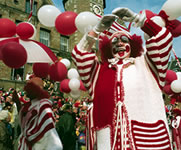Other highlights
Contact
Ostseebad Binz Tourist Information
Heinrich Heine-Strasse 7
18609 Ostseebad Binz
Email:
[email protected]
Internet:
www.ostseebad-binz.info
Heinrich Heine-Strasse 7
18609 Ostseebad Binz
Email:
[email protected]
Internet:
www.ostseebad-binz.info
Nature & greenery

Jasmund National Park is characterised by its chalk landscape, with marshes, wetlands and dry grassland. The "Königsstuhl" (King's Seat) is the tallest of the cliffs along the park's most popular attraction, its chalk coastline, which was famously painted by the 19th century German Romantic artist Caspar David Friedrich. The national park also boasts beech forests that have existed since the 13th century. They grow on the Stubnitz plateau, which is composed mainly of chalk and was formed during the ice age. The national park's rich flora and fauna includes the house martin, which breeds in the chalk reefs, and the rare sea eagle.
Rügen is blessed with a true geological rarity in the flint fields of Neu Mukran in the Schmale Heide nature conservation area. They run parallel to the shore between the pine forests and the Small Jasmund Bay, just west of the railway line. In an area of 200 hectares there are over ten shimmering carpets of grey-white flint that reach up to one metre in height. Thousands of years ago, these stones were eroded from chalk deposits by the power of the sea, and today are dotted with trees, shrubs, heather and protected species of plant such as round-leaved sundew, Italian orchid and cotton grass. They are the only flint fields in Europe.
Cape Arkona, a rock plateau that reaches a height of almost 50 metres, is the northernmost point of the island of Rügen. Like the famous chalk cliffs on the nearby Jasmund peninsula, the cliffs surrounding Cape Arkona are among the Baltic Sea's most fascinating stretches of coastline. Three tall towers line these steep cliffs – a naval radio control tower and a pair of historical lighthouses built extremely close together, while the Königstreppe (King's stairs) leading down to the beach, is just a short distance to the west of Cape Arkona. Natural, sandy beaches as far as the eye can see and high-quality water are ideal for getting away from it all.
Travel Planner
Select an option...







